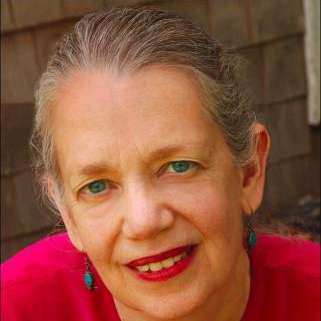Last spring, San Francisco Ballet presented twelve new ballets over the course of two and a half weeks. The ballets were set on the company by the most respected of today’s new choreographers. Four of those ballets became part of the company’s repertory, and two of them were presented in this year’s Program 5: Lyric Voices. Completing the program was the world premiere of Yuri Possokhov’s “… two united in a single soul …”
The evening opened with Trey McIntyre’s tender homage to his grandfather, Your Flesh Shall Be a Great Poem. Set to the songs of Chris Garneau, it uses the driving simplicity of the music with its whimsical and fantastical lyrics in a series of short dances, opening and closing the piece with a male solo. The stage was kept dark with no sets and only three videos occasionally projected onto the back wall. These showed an eclipse of the sun, a real world occurrence on the day McIntyre began choreographing, that bookended the piece, and a third clip of clouds in a field of cosmic darkness.
These were only moments, however, in a dance that was otherwise about the fragility of the human body. On paper it may sound self-conscious to the point of pretentiousness, but on stage it was the absolute opposite. There is a kind of purity to Your Flesh Shall Be a Great Poem, and a very human sense of longing and loss. This is captured in the choreography, which combines very direct athleticism with lyrical emotions in ways that are both surprising and natural. The athleticism is slowly paced, sliced through with graceful arms and the concise expressiveness of dancer Benjamin Freemantle. For although there are nine men and women dancing in duets, solos and ensembles, it is Freemantle who personifies not only the choreographer’s grandfather, but also the spirit of the ballet.
Freemantle was an interesting choice to represent McIntyre’s grandfather, who played football as a young man, worked as an undertaker throughout his adult life, and wandered the streets in his underwear as a demented old man. Freemantle is a Soloist for the company rather than Principal Dancer, but his lanky grace must have resonated with the choreographer’s memory. He danced the role beautifully. The choreography exalts him, and there was a transcendent quality to even the quirkiest of movements. At one point, Freemantle picked up a stool he had been standing on and held it on his shoulder. Its seat became the blank circle of the moon, which in turn visually replaced the head of the moonstruck man.
Christopher Wheeldon’s Bound To also explores the world of disconnection. His trope, however, is the cell phone. The piece opens with an ensemble of dancers entranced by their phones, the light of the screens illuminating their downward turning gaze. Now and then a dancer lifted the phone as if to catch its tenuous signal. In contrast to the phones, the set of three overlapping walls served as screens on which to project different environments. Symbols cascaded down the dark walls. Silhouettes passed across their surfaces. Angelo Greco danced a powerful solo in front of linear oscillations that filled the dark walls like an ocean of sine waves. In the scene “Remember when we used to talk?” the branches of winter-barren trees filled the surfaces of the screens, and four women – without cell phones – dance in synchronized play. Their summer dresses and repeated steps suggest harmony and freedom. The music, by British composer Keaton Henson, weaves in moments of human experience: “there’s always a child laughing, or the birds, or traffic.”
A long duet between Yuan Yuan Tan and Carlo Di Lanno was danced without phones, its movements close, demanding an intimacy of balance. The piece closes with Lonnie Weeks surrounded by the ensemble after a solo of long leaps and turns, suggesting escape as well as freedom.
Yuri Possokhov’s “… two united in a single soul …” is based on the myth of Narcissus. And while the myth suggests the futility of solitary and disconnected love, the piece itself is a morass of bodies and movement that undercut the isolation that is the tragedy of Narcissus. Despite the gorgeous dancing of Joseph Walsh and the stunning singing of countertenor Aryeh Nussbaum Cohen, the piece was a flurry, a much of a muchness. The use of the singer onstage as a presence reminiscent of Echo was brilliant, but everything seemed crowded and bombastic. Even Handel seemed excessive, although composer Daria Novo reworked the various selections into a coherent whole. Compared to the previous concise and spare ballets, Possokhov’s seems dated.


